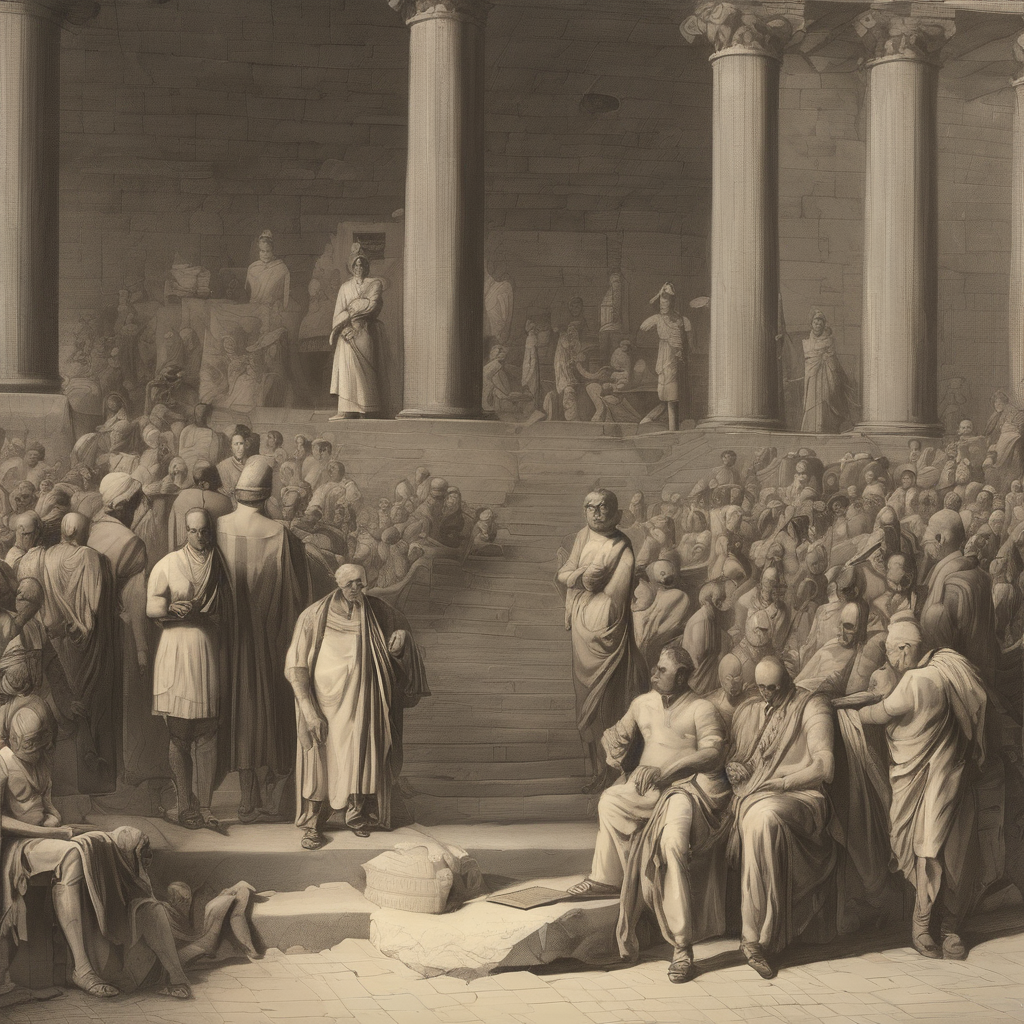On the Necessity of Law and Judicial Systems
 Fietzscher
Fietzscher
Before we dive into the messy world of human-made laws and judicial systems, let's take a moment to consider their philosophical grandparent: Natural Law. It's like the legal equivalent of asking, "But why?" until you reach the fundamental nature of reality itself.
What is Natural Law?
Natural Law is the idea that there are universal principles of right and wrong that are inherent in the nature of the universe and discoverable by human reason. It's like suggesting that the universe comes with its own moral code baked in, a cosmic rulebook that exists independently of what any particular society or government decides.
The source of Natural Law depends on who you ask:
1. The Theistic View: For many religious thinkers, Natural Law emanates from a divine source.
2. The Rationalist View: Others argue that Natural Law stems from pure reason and the nature of reality itself.
3. The Evolutionary View: Some modern thinkers propose that what we perceive as Natural Law is actually the result of evolutionary processes. These are the rules that allowed human societies to survive and thrive, hardwired into us through millennia of natural selection.
Natural Law provides a framework for critiquing positive law (the actual laws on the books) and serves as a philosophical justification for universal human rights. It's the reason we had Nuremberg trials and why "I was just following orders" isn't considered a get-out-of-jail-free card for crimes against humanity.
And this brings us neatly to our main topic: the necessity of law and judicial systems in a world of imperfect information and competing interpretations of what's right and just.
In essence, our legal system is a game of incomplete information where different players hold vastly different pieces of the puzzle. We can call this information asymmetry, and it's the reason why we can't just throw our hands up and say, "You know what? Laws are too complicated. Let's just wing it and hope for the best."
The Stabbing Scenario: A Case Study in Knowing What You Don't Know
Let's consider a hypothetical stabbing case to illustrate this point:
The Perpetrator: Our knife-wielding friend here is playing with a full deck. They know exactly what happened, why it happened and their intention. Information level: 100%
The Victim: Assuming they survived (let's hope so, for the sake of our legal proceedings), they have a pretty good idea of what went down. They felt the knife, saw the attacker, but might be a bit fuzzy on the "why" part. Information level: 75%
The Court: Our noble adjudicators are working with the informational equivalent of a half-eaten sandwich found behind the couch. They only know what's presented as evidence, which might not include crucial details like the perpetrator's secret diary entry titled "Why I'm Totally Going to Stab Bob Today." Information level: 25% (on a good day)
This asymmetry is why we need laws and a judicial system. Without them, we'd essentially be playing high-stakes Poker, except what’s at stake are actual human lives and societal order.
The Payments and Settlements Act: When Bureaucracy Actually Makes Things Better
Now, let's pivot to something a bit less stabby: financial transactions. The Payments and Settlements Act might sound like a cure for insomnia, but it's actually a fascinating example of how laws can reduce information asymmetry.
In the olden days (i.e., before the internet), financial transactions were about as transparent as a brick wall. Money moved around in mysterious ways, and fraud was like a game of Whack-A-Mole.
But then came online transactions, and suddenly we had a treasure trove of data. The Payments and Settlements Act leveraged this new reality, making it easier to spot fraud and malfeasance. It's like someone turned on the lights in a dark room where a bunch of financial crimes were happening, and all the criminals suddenly sunk back into the darkness.
If we had similar levels of mechanisms and systems in place to correctly assess omissions or commissions in a variety of situations, we could greatly reduce the need for an adjudicating party to parse through noise to find the signal.
Technologies like the Blockchain could play a part in this but it remains to be seen if individuals, companies and societies are incentivised to use it to increase information transparency.
This transparency is great for preventing fraud, but it also raises some interesting questions:
Do we really want every transaction to be public?
Are we replacing human judgement with algorithmic absolutism? (Sorry, sir, the blockchain says you can't buy ice cream because your smart fridge reported you're 0.5 pounds over your target weight.)
Is this level of transparency a tool for justice or just a new form of surveillance?
Regardless, since we have firmly established that laws and judicial systems are going nowhere, in the following articles we will explore how one such Judicial system of the future could look like.
Subscribe to my newsletter
Read articles from Fietzscher directly inside your inbox. Subscribe to the newsletter, and don't miss out.
Written by